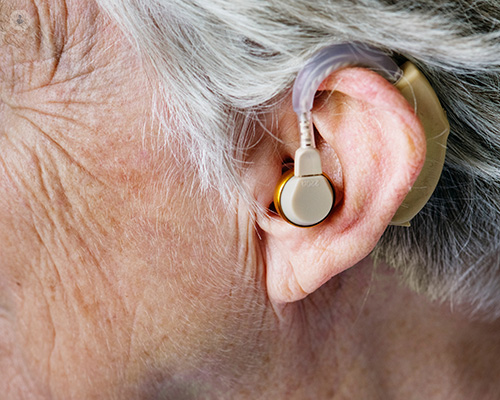

What is deafness?
Deafness, also known as hearing loss, describes difficulty hearing or the total inability to hear. Deafness can be partial or complete and can occur gradually, with age or it can happen suddenly. Some people are born with deafness.

What are the symptoms of deafness?
Particularly if hearing loss is happening gradually, noticing it can be difficult. However, the following are common signs that you may be going deaf:
- Asking people to repeat themselves
- Needing to turn the television up loud
- Difficulty hearing people, especially in loud places
- Muffling of speech
- Withdrawing from taking part in conversations
What causes deafness?
The causes of deafness can be congenital or acquired. Congenital causes present at birth or soon after and can be hereditary or non-hereditary, and are due to complications during pregnancy or childbirth.
As for the acquired causes, these can occur at any age due to:
- Infection or growths (tumours)
- Chronic ear infection
- Exposure to excessive noise
- Ageing
- Build-up of earwax
- Ruptured ear drum
Can deafness be prevented?
There are certain risk factors that can damage the ear or cause deafness, so prevention can be sought by:
- Avoiding loud noises (e.g. music concerts for long periods of time, listening to music too loudly)
- Vaccinating children against measles and meningitis
- Having hearing tests for children
- Avoiding certain medications, if possible
- Taking care if your work involves loud noises, wearing ear protectors
What is the treatment for deafness?
Sometimes, hearing loss will get better on its own, for example, if earwax is removed or treated with eardrops. However, other forms of deafness can be permanent. In such cases, treatment will aim to improve what hearing you have left. This can be done with hearing aids, cochlear implants, or by teaching lip reading or sign language.
